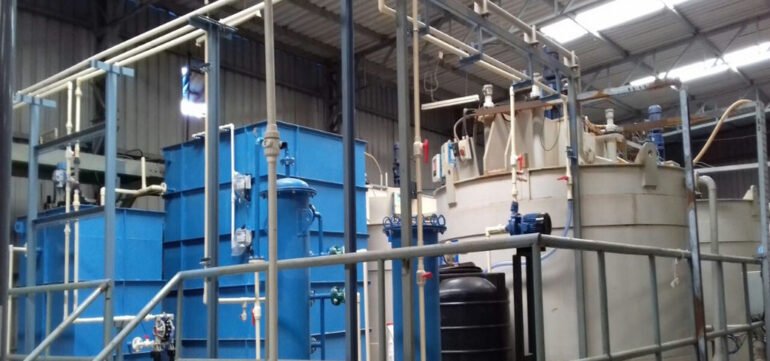
Effluent Treatment Plant (ETP)
Effluent Treatment Plants (ETPs) are specialized systems designed to treat industrial wastewater
by removing contaminants, chemicals, and hazardous pollutants before discharge or reuse.
Using a combination of physical, chemical, and biological processes, ETPs ensure compliance with
environmental regulations while minimizing the ecological impact of industrial effluents.
These plants play a vital role in sustainable water management, helping industries reduce pollution,
conserve resources, and promote a cleaner, greener future.
ETP Procedure Includes:
Equalization and Pre-Aeration → Bio-Reaction in Aeration Tank → Filtration (Sand & Activated Charcoal) → Sedimentation.
ETP PROCESS
Primary Treatment Units
High-efficiency screens, grit chambers, and oil & grease separators remove large solids and floating contaminants.
Biological Treatment Systems
Aeration tanks and advanced MBBR, SBR, and MBR systems promote microbial activity for effective organic matter removal.
Chemical Treatment Systems
Advanced coagulation, flocculation, and pH neutralization processes ensure the removal of fine suspended and dissolved impurities.
Sludge Handling Equipment
Sludge drying beds, centrifuges, and filter presses efficiently manage and dispose of the residual sludge.
APPLICATIONS
- Dairy Industries
- Fertilizer Manufacturing Industries
- Food & Food Processing Industries
- Dye & Pigment Manufacturing Industries
- Pulp & Paper Industries
- Edible Oil Industries
- Electroplating Industries
- Refinery Industries
- Textile & Ceramic Industries
- Sugar & Distilleries
- Petro-Chemical Industries
- Pharmaceutical Industries